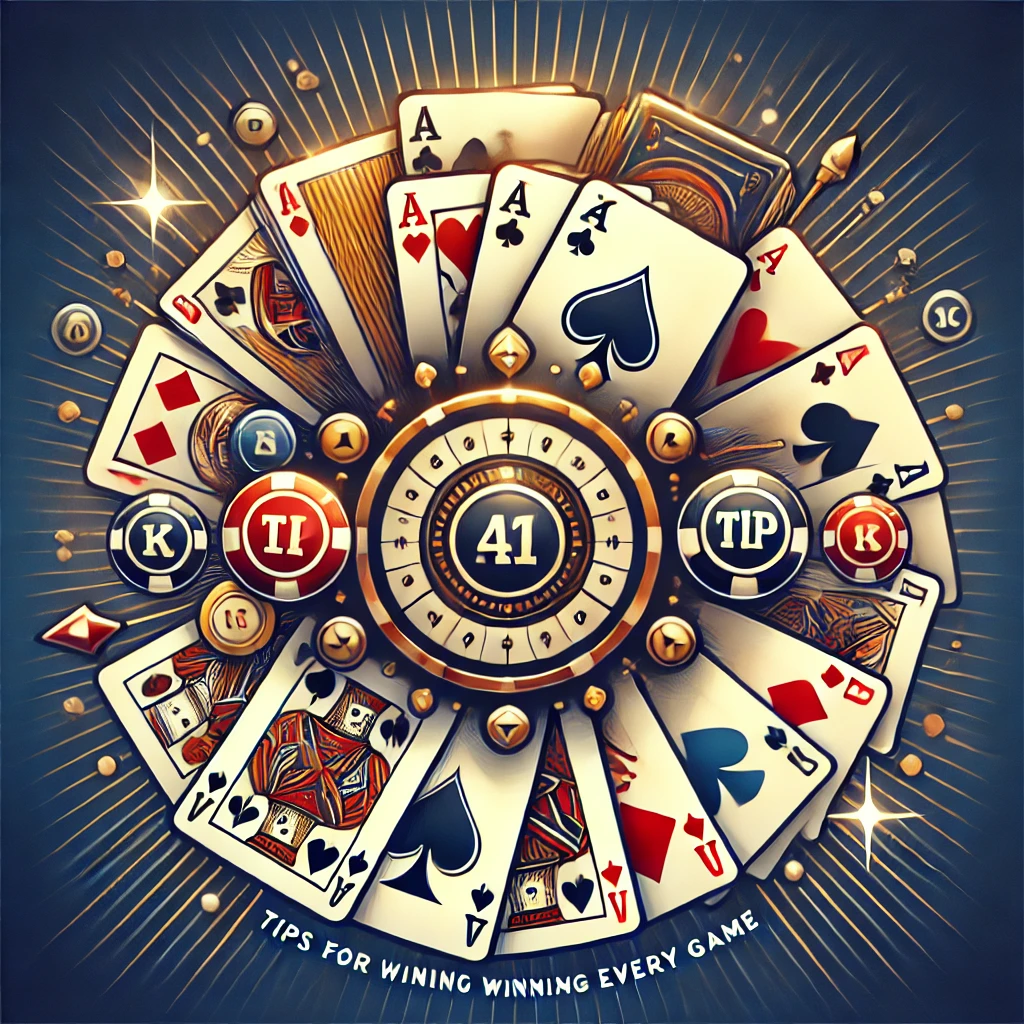Mastering Rummy: A Complete Guide For generations, players have been enthralled with the timeless card game of rummy. Because it combines skill, strategy, and a little bit of luck, it is popular with both casual and competitive players. In addition to knowing the rules, a player must also build strategies, watch their opponents, control their hand, & remain composed while playing rummy if they want to succeed. With insights that can help you improve your game, this article explores the fundamentals of rummy. Rummy is essentially a card game in which players form sets and runs from a hand of cards.
A run is made up of three or more consecutive cards of the same suit, whereas a set is made up of three or four cards of the same rank. Each player is usually dealt a certain number of cards at the start of the game, with the remaining cards creating a draw pile. Players alternately draw from the discard or draw piles in an effort to create better hands by combining legal combinations. The moment a player successfully melds every card they have and places them on the table, the round is over.
Effective gameplay in Rummy requires an understanding of its subtleties. Rummy comes in a variety of forms, each with its own set of regulations governing the quantity of cards dealt, the use of wild cards, and scoring schemes. In certain versions, for example, players might be permitted to use jokers as wild cards to finish their runs or sets. Gaining knowledge of these variations can give you a tactical edge since it enables you to modify your gameplay to fit the particular rules at play.
It’s also critical to understand the scoring system; points are usually awarded according to the cards that are still in the hands of opponents after one player leaves the game, so it’s critical to monitor possible scores at all times. Developing a well-rounded strategy that incorporates both offensive and defensive tactics is essential for a successful Rummy player. Players’ offensive goals should be to form melds as fast as they can while monitoring the movements of their opponents. To do this, you must consider what your opponents might need in addition to drawing cards that will help you finish your own sets & runs. For example, it might be a good idea to modify your strategy by keeping cards that could prevent your opponent from completing their melds if you observe them selecting cards from the discard pile.
Making sensible use of your discards is just as crucial from a defensive standpoint. If you think your opponent is about to go out, it can be dangerous to discard high-point cards. Discarding low-point cards or those that are unlikely to assist your opponents in finishing their hands is the goal instead. Also, think about when you reveal your hand; if you reveal it too soon, your opponents may learn your strategy and be able to successfully counter your moves. By striking a balance between offensive and defensive tactics, you can develop a dynamic strategy that maximizes your chances of winning while keeping your opponents guessing.
Seeing and evaluating your opponents’ actions & card selections is one of the most important parts of rummy. An understanding of their tactics & possible melds can be gained by keeping an eye on the cards they draw and discard. For instance, an opponent may be nearing the end of a set or run if they routinely remove cards from the discard pile.
You can decide which cards to keep or discard based on the fact that, on the other hand, they may be discarding some cards a lot, which may indicate that they are not useful for their hand. Also, reading an opponent’s facial expressions and body language during a game can provide hints about their emotional state and degree of confidence. While a calm and decisive player may have a strong position, a player who seems nervous or unsure may be having trouble with their hand. You can get a tactical advantage over your rivals by improving your observational abilities, which will enable you to predict their moves and modify your gameplay accordingly. This degree of consciousness not only improves your own performance but also gives the game an exciting psychological warfare element. In rummy, managing your hands well is essential since it has a direct effect on your capacity to create melds and win the game.
When your hand is well-managed, you can minimize possible losses and maximize your options. Prioritizing which cards to keep based on their ability to form runs or sets is a crucial component of hand management. To streamline your hand, you can discard cards that don’t contribute to your overall strategy, but it’s crucial to keep cards that could be part of a run or set. Also, during the game, players should frequently reevaluate their hands. Your hand’s dynamics could drastically alter as new cards are drawn and discarded. Being adaptable and ready to change your plan of action in response to the changing dynamics of the game is crucial.
Consider discarding cards that are no longer helpful for creating melds in favor of drawing new cards that might better accomplish your goals. Keeping an effective hand and improving your chances of winning at rummy depend on this continuous assessment process. In Rummy, choosing what and when to discard is a crucial decision that can have a big impact on how the game turns out. If you discard too frequently, you expose yourself to opponents who might take advantage of the cards you put into play. If another player goes out before you can meld your hand, it can be harmful to hold onto too many high-point cards.
Effective gameplay therefore requires an understanding of the timing and strategy involved in discarding. When deciding which hand to discard, take into account both your current hand and your opponents’ possible hands. Discarding a high-point card early on could help you reduce potential losses in the event that an opponent goes out if it doesn’t contribute to any melds. On the other hand, it might be wise to hold onto some cards that could prevent your opponent from finishing their hand if you believe they are almost done based on their draws and discards.
In the end, developing the skill of discarding necessitates striking a balance between strategic foresight and risk assessment. You can greatly increase your chances of creating melds & winning rounds in rummy by using powerful tools like jokers and wild cards. These adaptable cards are a great asset in gameplay since they can be used in place of any other card in a run or set. To optimize their potential advantages, it is essential to understand when and how to use them. Jokes are strategically used during runs.
Jokers, for example, can speed up a run by completing a sequence, but it’s usually a good idea to save them for more difficult situations where they can significantly impact your hand. Refrain from revealing too many jokes too soon. Players should also exercise caution when too many jokers are revealed too early in the game. They can speed up the formation of melds, but letting your opponents know you have more than one joker might help them figure out your plan and better counter your moves.
How to Use Jokers and Wild Cards Effectively. Instead, think about strategically using jokers throughout the game. For maximum effect, use them in conjunction with other high-value cards or hold onto them until you are almost ready to go out. Learn how to use jokers and wild cards to improve your gameplay and increase your chances of winning. Point tracking is crucial in Rummy to comprehend your position in the game as well as that of your opponents.
Knowing the value of unmelded cards that are still in players’ hands at the end of each round is usually how points are allocated, so knowing these values can help you make better decisions as you play. Effective management of high-point cards, like face cards (Kings, Queens, and Jacks), is essential for reducing possible losses because they carry a lot of weight in the scoring process. Also, by keeping track of points, players can determine when it might be best to go out or hold back depending on where they stand at the table right now. It could be a good idea to play aggressively and try to go out before your opponents have a chance to fully meld their hands if you have a lower point total than they do. On the other hand, it could be wise to play defensively until you can lower your point total through calculated discards or melds if you are holding a lot of high-point cards while others have low totals.
When players compete for victory, rummy can be a fierce game with moments of pressure & high stakes. Making wise choices & carrying out plans successfully during these crucial times require maintaining composure. Being composed in the face of difficult circumstances, like an opponent closing in on victory or holding onto high-point cards, enables you to evaluate your options and think clearly without giving in to anxiety or annoyance.
Using mindfulness exercises can help you develop a composed attitude when playing games. During stressful situations, methods like deep breathing or imagining positive outcomes can help you focus & lower your anxiety levels. Also, cultivating a positive outlook on both winning & losing can help you become more resilient; realizing that every game offers chances for improvement & learning will help you play Rummy with poise & confidence no matter what happens. In conclusion, learning Rummy necessitates a multidimensional strategy that includes comprehending the rules, formulating plans, observing rivals, skillfully managing hands, making well-informed discards, making good use of wild cards, keeping careful track of points, and remaining composed under duress. By developing these abilities & embracing the social dynamics and strategic depth that come with playing Rummy, players can improve their chances of winning at the table and enjoy this classic card game more.




